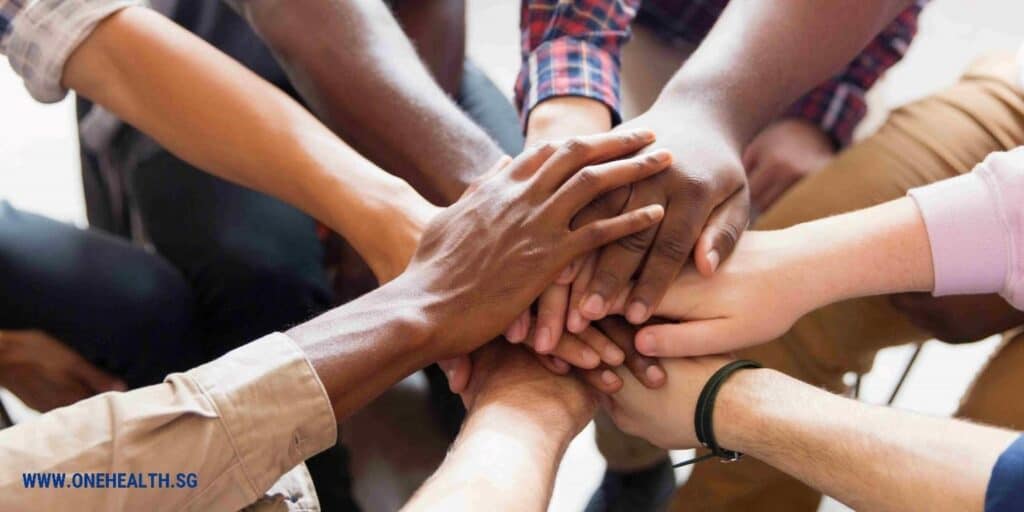Loneliness is a growing public health problem. In the United Kingdom, for example, an estimated 14 million people (one in six adults) report feeling lonely. Loneliness can have a serious impact on mental and physical health, increasing the risk of depression, anxiety, heart disease, and stroke.
There are many factors that can contribute to loneliness, including social isolation, loss of loved ones, and changes in life circumstances. Loneliness can also be a symptom of underlying mental health conditions, such as depression or anxiety.
While loneliness is a complex issue, there are a number of things that can be done to address it. One important approach is to strengthen community connections. When people feel connected to their community, they are less likely to feel lonely.
There are many ways to strengthen community connections. Some examples include:

- Volunteering: Volunteering is a great way to meet new people and give back to your community. There are many different volunteer opportunities available, so you can find something that interests you.
- Joining a club or group: Joining a club or group is another great way to meet new people and make friends. There are clubs and groups for all interests, so you can find one that’s a good fit for you.
- Participating in community events: Attending community events is a great way to get out and meet new people. There are many different community events happening all the time, so you can find something that interests you.
- Reaching out to neighbors: Getting to know your neighbors is a great way to build community connections. You can start by introducing yourself to your neighbors and inviting them over for coffee or a meal.
In addition to these individual-level interventions, there are also a number of community-level initiatives that can be implemented to tackle loneliness. These initiatives can include:
- Creating more opportunities for social interaction: This could involve things like building more community centers or parks, or providing transportation to community events.
- Promoting social inclusion: This could involve things like raising awareness of loneliness and isolation, or providing training to help people develop social skills.
- Supporting people with mental health conditions: This could involve providing access to mental health services, or supporting people to develop coping mechanisms for loneliness.
By strengthening community connections and implementing community-level initiatives, we can help to tackle loneliness and improve mental health.
The Benefits of Community Connections
There are many benefits to having strong community connections. For one, it can help to reduce loneliness. When people feel connected to their community, they are less likely to feel isolated and alone. This is because they have a sense of belonging and purpose, which can help to protect against mental health problems.
In addition, community connections can also provide social support. This means that people have people to turn to for help and support when they need it. This can be especially important for people who are going through difficult times, such as a divorce or the death of a loved one.
Finally, community connections can also provide opportunities for social interaction. This means that people have the chance to meet new people and make friends. This can help to improve mental and physical health, as well as overall well-being.
How to Strengthen Community Connections
There are many things that can be done to strengthen community connections. Some of these include:
- Get involved in your community: This could involve volunteering, joining a club or group, or attending community events.
- Reach out to your neighbors: Get to know your neighbors and build relationships with them.
- Be a good listener: When someone is going through a difficult time, be there for them and listen to them.
- Be supportive: Offer your support to people who need it.
- Be inclusive: Make sure that everyone feels welcome and included in your community.
Loneliness is a serious public health problem, but it is one that can be addressed. By strengthening community connections, we can help to reduce loneliness and improve mental health. There are many things that can be done to strengthen community connections, such as getting involved in your community, reaching out to your neighbors, and being a good listener. By taking these steps, we can help to create a more connected and supportive society.

